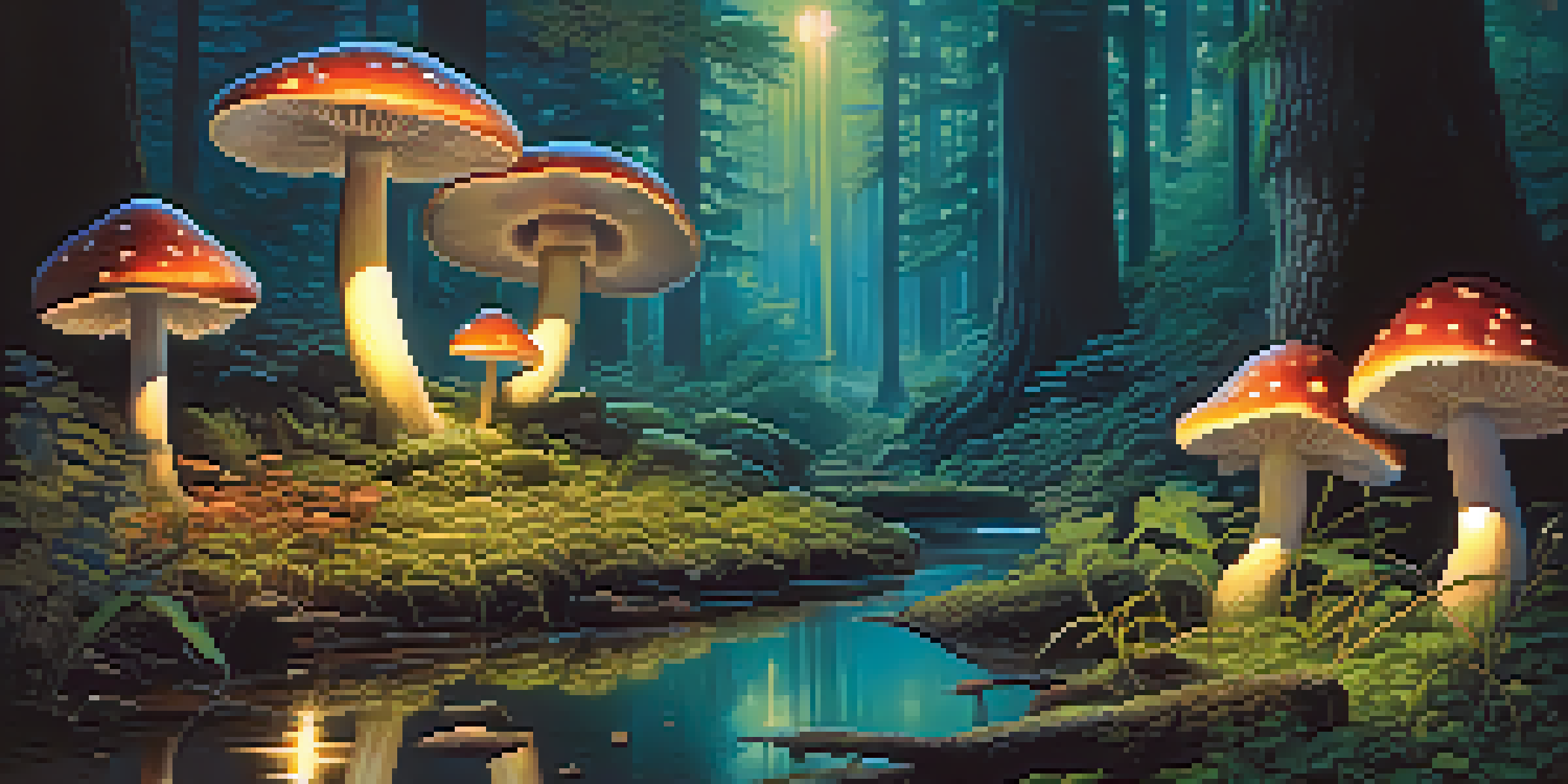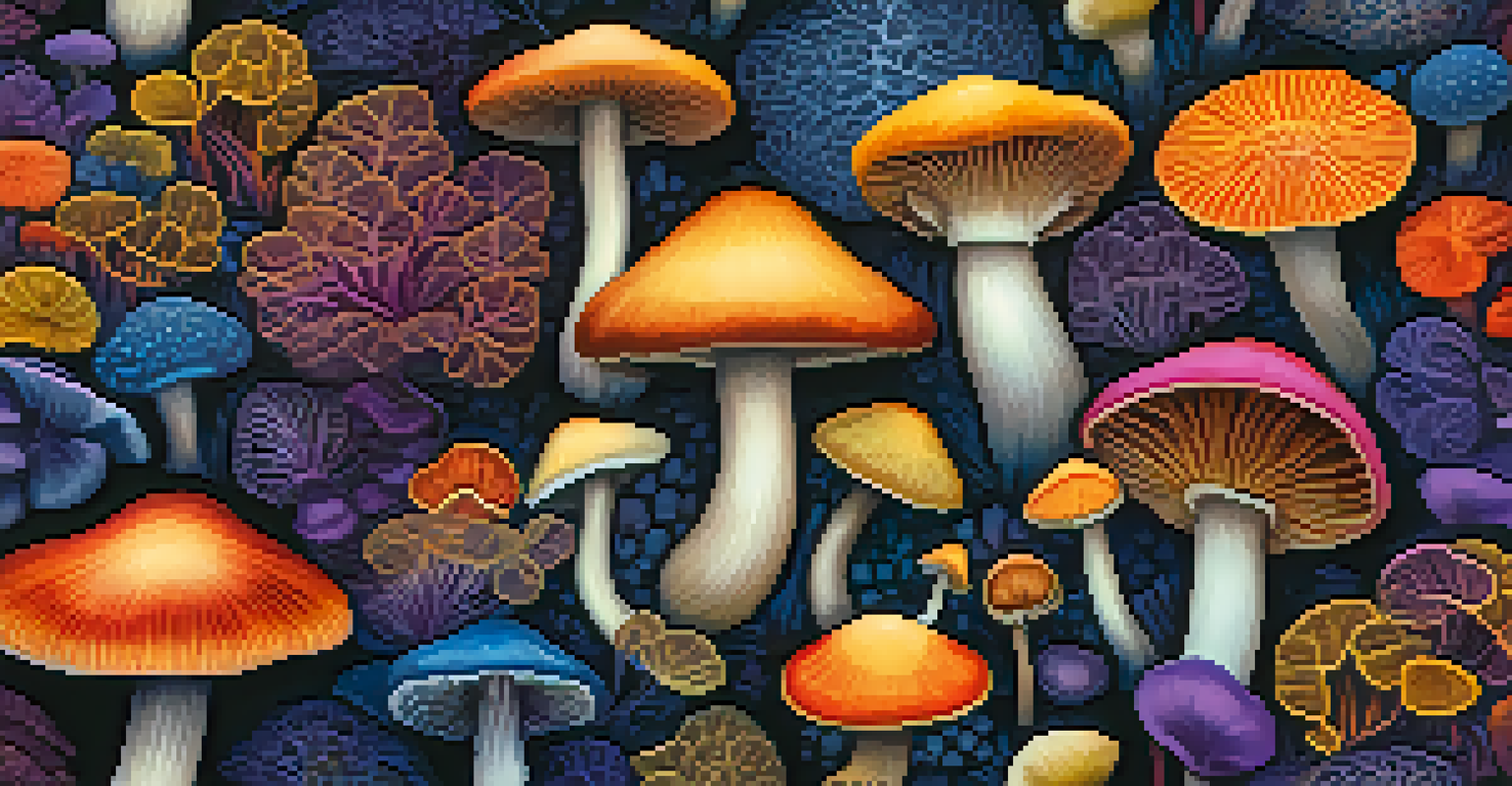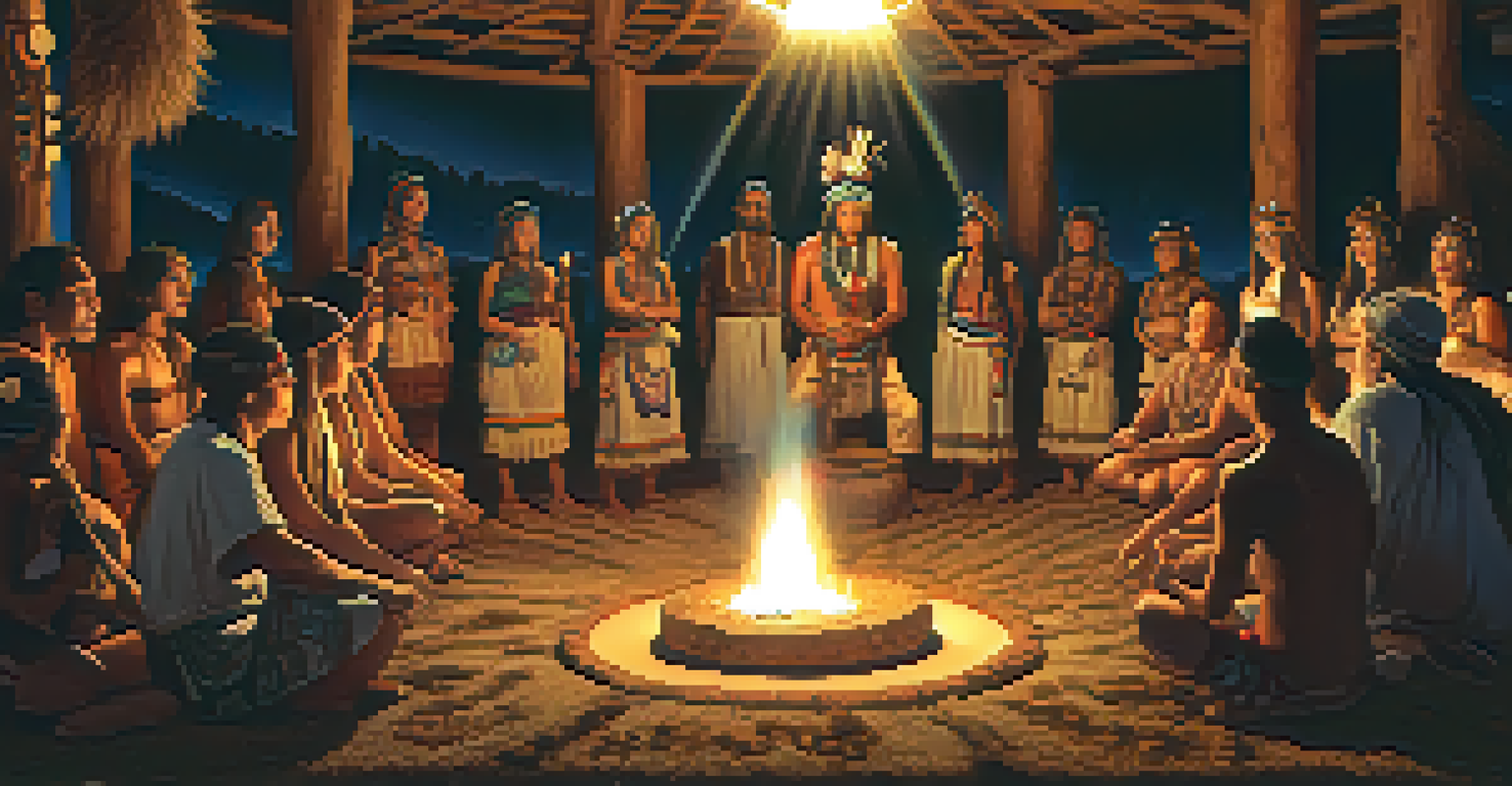Psychedelic Mushrooms in Traditional Healing Practices

The Historical Roots of Psychedelic Mushrooms
Psychedelic mushrooms, often referred to as psilocybin mushrooms, have a rich history intertwined with various cultures. For centuries, indigenous tribes in Mesoamerica have utilized these fungi in spiritual rituals and healing ceremonies. This historical context reveals how deeply embedded these mushrooms are in traditional practices, serving not only as a means of healing but also as a bridge to the spiritual realm.
Psychedelics can help us better understand ourselves and the world around us.
In these cultures, the use of psychedelics was often viewed as a sacred act, facilitating communication with ancestors or deities. The rituals surrounding these mushrooms were meticulously crafted, often involving music, dance, and community participation. Such practices highlight the communal aspect of healing, emphasizing that the journey is not just personal but collective.
As we explore these historical roots, it's clear that the allure of psychedelic mushrooms goes beyond their psychoactive properties. They have been revered as tools for transformation, providing insights and healing that are as relevant today as they were centuries ago.
Cultural Significance in Healing Practices
Psychedelic mushrooms hold a profound cultural significance in many societies, particularly among indigenous peoples. They are often seen as a bridge between the physical and spiritual worlds, allowing individuals to access deeper levels of consciousness. This cultural perspective shapes how these mushrooms are used in healing practices, often incorporating rituals that honor the spiritual journey.

For example, in the Mazatec culture of Mexico, the use of psilocybin mushrooms is closely linked to traditional healing. Shamans, or spiritual healers, guide individuals through their experiences, helping them interpret visions and insights that arise during the journey. This guidance is crucial, as it fosters a safe environment for exploration and healing.
Psychedelics in Ancient Healing
Psychedelic mushrooms have been used for centuries in indigenous cultures for spiritual rituals and healing practices.
Moreover, the cultural narratives surrounding these mushrooms often emphasize respect for nature and the interconnectedness of all living beings. This holistic view is central to traditional practices, reminding us that healing is not just about the individual but about the community and the environment.
Modern Research and Traditional Wisdom
In recent years, modern scientific research has begun to validate the therapeutic potential of psychedelic mushrooms, aligning with traditional wisdom. Studies have shown promising results in treating conditions such as depression, PTSD, and anxiety. This convergence of ancient practices and contemporary science opens new avenues for understanding mental health and wellness.
The experience of using psychedelics can lead to profound personal insights and emotional breakthroughs.
Researchers are exploring how psilocybin can facilitate profound personal insights and emotional breakthroughs, similar to the experiences reported by indigenous users. This growing body of evidence highlights the importance of integrating traditional knowledge with modern therapeutic approaches. By doing so, we can create a more holistic framework for healing.
However, it’s essential to approach this integration with respect and caution. Understanding the cultural context and the traditional practices surrounding these mushrooms is crucial to ensuring that their use is ethical and beneficial. As we navigate this intersection of old and new, we must honor the wisdom that has been passed down through generations.
Psychedelic Mushrooms and Mental Health
Mental health issues are a growing concern in our society, and psychedelic mushrooms are emerging as a potential ally in this battle. The active compound, psilocybin, has shown promise in clinical trials, providing relief for those suffering from depression and anxiety. This potential has sparked interest not only in the scientific community but also among individuals seeking alternative healing methods.
The therapeutic experience often leads to profound shifts in perspective, allowing individuals to confront and process deep-seated emotions. Many users report that their experiences with psilocybin have led to increased empathy, reduced fear of death, and a greater appreciation for life. These transformative effects echo the healing practices of traditional cultures, where the focus is on holistic well-being.
Modern Science Validates Benefits
Recent research supports the therapeutic potential of psilocybin in treating mental health conditions like depression and PTSD.
Understanding mental health through the lens of psychedelics encourages an open dialogue about alternative therapies. It challenges the stigma surrounding mental health and invites individuals to explore various avenues for healing, including those rooted in tradition and spirituality.
Ethical Considerations in Usage
As interest in psychedelic mushrooms grows, so do the ethical considerations surrounding their use. It's crucial to approach these substances with respect, understanding the cultural significance they hold for many indigenous communities. Ethical usage involves recognizing the historical exploitation and ensuring that these practices are not appropriated or commodified.
Incorporating traditional practices into modern contexts requires sensitivity and awareness. Engaging with indigenous experts and respecting their knowledge can help create a framework that honors their traditions while allowing individuals to benefit from these healing practices. This collaboration is essential for ethical integration.
Furthermore, as research progresses, establishing guidelines for safe and responsible use becomes paramount. This includes training for facilitators, informed consent for participants, and a commitment to preserving the cultural heritage of psychedelic mushroom use.
Personal Stories of Healing
Personal testimonials often highlight the transformative power of psychedelic mushrooms in healing. Many individuals share stories of profound insights and emotional releases that have significantly altered their lives. These narratives not only provide hope but also illustrate the potential for healing that transcends conventional methods.
For instance, some users recount experiences where past traumas were confronted and understood in new ways, leading to lasting emotional relief. These stories resonate deeply, showcasing the intimate connection between mind, body, and spirit. Such accounts emphasize that healing is a personal journey, often requiring vulnerability and openness.
Ethics in Psychedelic Usage
Ethical considerations are essential when integrating psychedelic mushrooms into modern practices, respecting their cultural significance.
By sharing these personal stories, we create a space for others to explore their healing journeys. These narratives remind us that we are not alone in our struggles and that there are various paths to wellness, including those inspired by ancient traditions.
The Future of Psychedelic Mushrooms in Healing
As we look to the future, the role of psychedelic mushrooms in healing practices is poised for growth. Increasing acceptance and research into their therapeutic benefits could lead to broader integration into mental health care. This shift not only highlights the potential of these substances but also the need for continued dialogue about their use.
The future may see psychedelic-assisted therapy becoming a standard option for those seeking relief from mental health issues. This evolution would require collaboration between traditional healers, researchers, and mental health professionals to create effective and respectful practices. By blending ancient wisdom with modern understanding, we can cultivate a rich tapestry of healing.

Ultimately, the future of psychedelic mushrooms in healing is a reflection of our evolving understanding of health and wellness. By embracing both tradition and innovation, we can foster a more inclusive approach to healing that honors the past while looking forward to new possibilities.